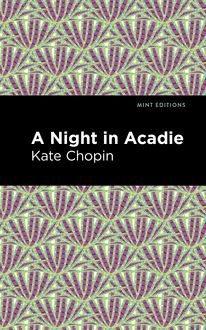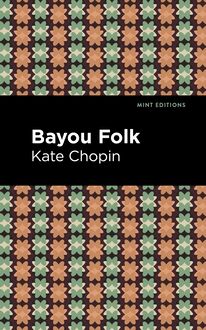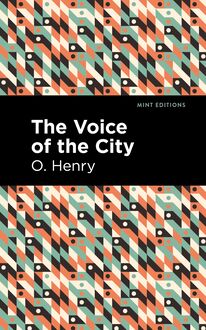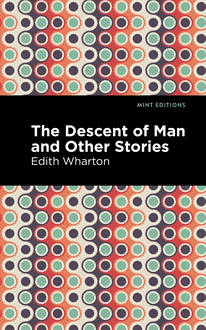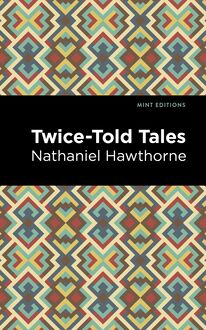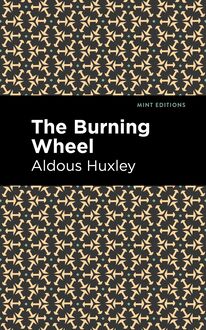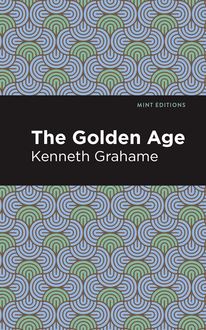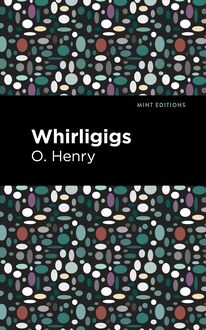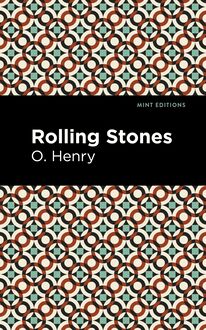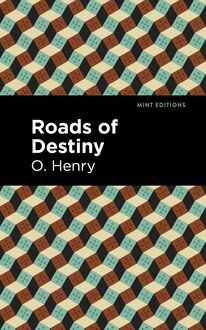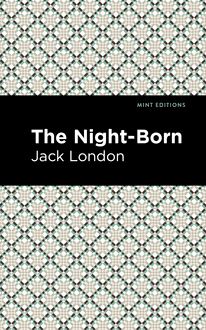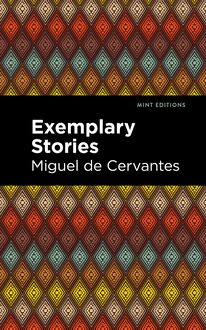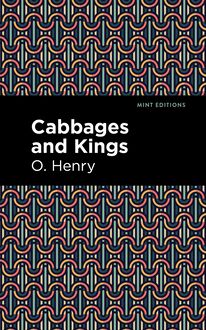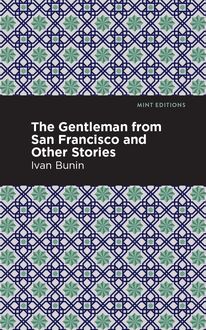-
 Univers
Univers
-
 Ebooks
Ebooks
-
 Livres audio
Livres audio
-
 Presse
Presse
-
 Podcasts
Podcasts
-
 BD
BD
-
 Documents
Documents
-
- Cours
- Révisions
- Ressources pédagogiques
- Sciences de l’éducation
- Manuels scolaires
- Langues
- Travaux de classe
- Annales de BEP
- Etudes supérieures
- Maternelle et primaire
- Fiches de lecture
- Orientation scolaire
- Méthodologie
- Corrigés de devoir
- Annales d’examens et concours
- Annales du bac
- Annales du brevet
- Rapports de stage
La lecture à portée de main
Vous pourrez modifier la taille du texte de cet ouvrage
Découvre YouScribe en t'inscrivant gratuitement
Je m'inscrisDécouvre YouScribe en t'inscrivant gratuitement
Je m'inscrisEn savoir plus
Vous pourrez modifier la taille du texte de cet ouvrage
En savoir plus

Description
Comprised of six short works of fiction, The Dorrington Deed-Box follows a London-based private detective named Horace Dorrington. Motivated by profit, Dorrington will do whatever it takes to catch criminals—even if that means killing them. This immoral and dishonest behavior extends to his clients as well, as Dorrington will manipulate anyone he can into hiring him. Outwardly polite, even-tempered and charming, Dorrington is socially pleasant but professionally corrupt. Told through the perspective of James Rigby, Dorrington’s latest client, The Dorrington Deed-Box begins when Rigby and Dorrington meet on a train. After appealing to Rigby’s paranoia, Dorrington gets hired to save Rigby from a threat that the detective mostly made up. However, as Rigby’s narration follows the private detective through his cases, it is impossible not to be fascinated with the way Dorrington works. As he solves crimes, recovers stolen items, outsmarts scammers and exposes crooked businesses, Dorrington is unafraid to get his hands dirty. He is willing to intimidate, steal, or dispose of anything and anyone standing in the way of a resolved case. Originally published in the midst of the detective fiction craze, spearheaded by the Sherlock Holmes creator Arthur Conan Doyle, The Dorrington Deed-Box by Arthur Morrison is a collection of work that celebrates an anti-hero detective. Featuring a variety of clever and interesting works of short fiction, The Dorrington Deed-Box adds a unique and dark twist to detective fiction. With film and television adaptations and allusions, Arthur Morrison’s The Dorrington Deed-Box and its protagonist, Horace Dorrington, have earned a place in pop culture, remaining fun and riveting to contemporary audiences. This edition of The Dorrington Deed-Box by Arthur Morrison now features an eye-catching new cover design and is printed in a font that is both modern and readable. With these accommodations, this edition of The Dorrington Deed-Box creates an accessible and pleasant reading experience for modern audiences while restoring the original wit and intrigue of Arthur Morrison’s work.
Sujets
Informations
| Publié par | Mint Editions |
| Date de parution | 14 mai 2021 |
| Nombre de lectures | 0 |
| EAN13 | 9781513285801 |
| Langue | English |
| Poids de l'ouvrage | 1 Mo |
Informations légales : prix de location à la page 0,0450€. Cette information est donnée uniquement à titre indicatif conformément à la législation en vigueur.
Extrait
The Dorrington Deed-Box
Arthur Morrison
The Dorrington Deed-Box was first published in 1897.
This edition published by Mint Editions 2021.
ISBN 9781513280783 | E-ISBN 9781513285801
Published by Mint Editions®
minteditionbooks .com
Publishing Director: Jennifer Newens
Design & Production: Rachel Lopez Metzger
Project Manager: Micaela Clark
Typesetting: Westchester Publishing Services
C ONTENTS I . T HE N ARRATIVE OF M R. J AMES R IGBY II . T HE C ASE OF J ANISSARY III . T HE C ASE OF THE “ M IRROR OF P ORTUGAL” IV . T HE A FFAIR OF THE “ A VALANCHE B ICYCLE AND T YRE C O., L IMITED” V . T HE C ASE OF M R. L OFTUS D EACON VI . O LD C ATER’S M ONEY
I
T HE N ARRATIVE OF M R. J AMES R IGBY
I shall here set down in language as simple and straightforward as I can command, the events which followed my recent return to England; and I shall leave it to others to judge whether or not my conduct has been characterised by foolish fear and ill-considered credulity. At the same time I have my own opinion as to what would have been the behaviour of any other man of average intelligence and courage in the same circumstances; more especially a man of my exceptional upbringing and retired habits.
I was born in Australia, and I have lived there all my life till quite recently, save for a single trip to Europe as a boy, in company with my father and mother. It was then that I lost my father. I was less than nine years old at the time, but my memory of the events of that European trip is singularly vivid.
My father had emigrated to Australia at the time of his marriage, and had become a rich man by singularly fortunate speculations in land in and about Sydney. As a family we were most uncommonly self-centred and isolated. From my parents I never heard a word as to their relatives in England; indeed to this day I do not as much as know what was the Christian name of my grandfather. I have often supposed that some serious family quarrel or great misfortune must have preceded or accompanied my father’s marriage. Be that as it may, I was never able to learn anything of my relatives, either on my mother’s or my father’s side. Both parents, however, were educated people, and indeed I fancy that their habit of seclusion must first have arisen from this circumstance, since the colonists about them in the early days, excellent people as they were, were not as a class distinguished for extreme intellectual culture. My father had his library stocked from England, and added to by fresh arrivals from time to time; and among his books he would pass most of his days, taking, however, now and again an excursion with a gun in search of some new specimen to add to his museum of natural history, which occupied three long rooms in our house by the Lane Cove river.
I was, as I have said, eight years of age when I started with my parents on a European tour, and it was in the year 1873. We stayed but a short while in England at first arrival, intending to make a longer stay on our return from the Continent. We made our tour, taking Italy last, and it was here that my father encountered a dangerous adventure.
We were at Naples, and my father had taken an odd fancy for a picturesque-looking ruffian who had attracted his attention by a complexion unusually fair for an Italian, and in whom he professed to recognise a likeness to Tasso the poet. This man became his guide in excursions about the neighbourhood of Naples, though he was not one of the regular corps of guides, and indeed seemed to have no regular occupation of a definite sort. “Tasso,” as my father always called him, seemed a civil fellow enough, and was fairly intelligent; but my mother disliked him extremely from the first, without being able to offer any very distinct reason for her aversion. In the event her instinct was proved true.
“Tasso”—his correct name, by the way, was Tommaso Marino—persuaded my father that something interesting was to be seen at the Astroni crater, four miles west of the city, or thereabout; persuaded him, moreover, to make the journey on foot; and the two accordingly set out. All went well enough till the crater was reached, and then, in a lonely and broken part of the hill, the guide suddenly turned and attacked my father with a knife, his intention, without a doubt, being murder and the acquisition of the Englishman’s valuables. Fortunately my father had a hip-pocket with a revolver in it, for he had been warned of the danger a stranger might at that time run wandering in the country about Naples. He received a wound in the flesh of his left arm in an attempt to ward off a stab, and fired, at wrestling distance, with the result that his assailant fell dead on the spot. He left the place with all speed, tying up his arm as he went, sought the British consul at Naples, and informed him of the whole circumstances. From the authorities there was no great difficulty. An examination or two, a few signatures, some particular exertions on the part of the consul, and my father was free, so far as the officers of the law were concerned. But while these formalities were in progress no less than three attempts were made on his life—two by the knife and one by shooting—and in each his escape was little short of miraculous. For the dead ruffian, Marino, had been a member of the dreaded Camorra, and the Camorristi were eager to avenge his death. To anybody acquainted with the internal history of Italy—more particularly the history of the old kingdom of Naples—the name of the Camorra will be familiar enough. It was one of the worst and most powerful of the many powerful and evil secret societies of Italy, and had none of the excuses for existence which have been from time to time put forward on behalf of the others. It was a gigantic club for the commission of crime and the extortion of money. So powerful was it that it actually imposed a regular tax on all food material entering Naples—a tax collected and paid with far more regularity than were any of the taxes due to the lawful Government of the country. The carrying of smuggled goods was a monopoly of the Camorra, a perfect organisation existing for the purpose throughout the kingdom. The whole population was terrorised by this detestable society, which had no less than twelve centres in the city of Naples alone. It contracted for the commission of crime just as systematically and calmly as a railway company contracts for the carriage of merchandise. A murder was so much, according to circumstances, with extras for disposing of the body; arson was dealt in profitably; maimings and kidnappings were carried out with promptitude and despatch; and any diabolical outrage imaginable was a mere matter of price. One of the staple vocations of the concern was of course brigandage. After the coming of Victor Emanuel and the fusion of Italy into one kingdom the Camorra lost some of its power, but for a long time gave considerable trouble. I have heard that in the year after the matters I am describing two hundred Camorristi were banished from Italy.
As soon as the legal forms were complied with, my father received the broadest possible official hint that the sooner and the more secretly he left the country the better it would be for himself and his family. The British consul, too, impressed it upon him that the law would be entirely unable to protect him against the machinations of the Camorra; and indeed it needed but little persuasion to induce us to leave, for my poor mother was in a state of constant terror lest we were murdered together in our hotel; so that we lost no time in returning to England and bringing our European trip to a close.
In London we stayed at a well-known private hotel near Bond Street. We had been but three days here when my father came in one evening with a firm conviction that he had been followed for something like two hours, and followed very skilfully too. More than once he had doubled suddenly with a view to confront the pursuers, who he felt were at his heels, but he had met nobody of a suspicious appearance. The next afternoon I heard my mother telling my governess (who was travelling with us) of an unpleasant-looking man, who had been hanging about opposite the hotel door, and who, she felt sure, had afterwards been following her and my father as they were walking. My mother grew nervous, and communicated her fears to my father. He, however, pooh-poohed the thing, and took little thought of its meaning. Nevertheless the dogging continued, and my father, who was never able to fix upon the persons who caused the annoyance—indeed he rather felt their presence by instinct, as one does in such cases, than otherwise—grew extremely angry, and had some idea of consulting the police. Then one morning my mother discovered a little paper label stuck on the outside of the door of the bedroom occupied by herself and my father. It was a small thing, circular, and about the size of a sixpenny-piece, or even smaller, but my mother was quite certain that it had not been there when she last entered the door the night before, and she was much terrified. For the label carried a tiny device, drawn awkwardly in ink—a pair of knives of curious shape, crossed: the sign of the Camorra.
Nobody knew anything of this label, or how it came where it had been found. My mother urged my father to place himself under the protection of the police at once, but he delayed. Indeed, I fancy he had a suspicion that the label might be the production of some practical joker staying at the hotel who had heard of his Neapolitan adventure (it was reported in many newspapers) and designed to give him a fright. But that very evening my poor father was found dead, stabbed in a dozen places, in a short, quiet street not forty yards from the hotel. He had merely gone out to buy a few cigars of a particular brand which he fancied, at a shop two streets away, and in less than half an hour of his departure the poli
-
 Univers
Univers
-
 Ebooks
Ebooks
-
 Livres audio
Livres audio
-
 Presse
Presse
-
 Podcasts
Podcasts
-
 BD
BD
-
 Documents
Documents
-
Jeunesse
-
Littérature
-
Ressources professionnelles
-
Santé et bien-être
-
Savoirs
-
Education
-
Loisirs et hobbies
-
Art, musique et cinéma
-
Actualité et débat de société
-
Jeunesse
-
Littérature
-
Ressources professionnelles
-
Santé et bien-être
-
Savoirs
-
Education
-
Loisirs et hobbies
-
Art, musique et cinéma
-
Actualité et débat de société
-
Actualités
-
Lifestyle
-
Presse jeunesse
-
Presse professionnelle
-
Pratique
-
Presse sportive
-
Presse internationale
-
Culture & Médias
-
Action et Aventures
-
Science-fiction et Fantasy
-
Société
-
Jeunesse
-
Littérature
-
Ressources professionnelles
-
Santé et bien-être
-
Savoirs
-
Education
-
Loisirs et hobbies
-
Art, musique et cinéma
-
Actualité et débat de société
- Cours
- Révisions
- Ressources pédagogiques
- Sciences de l’éducation
- Manuels scolaires
- Langues
- Travaux de classe
- Annales de BEP
- Etudes supérieures
- Maternelle et primaire
- Fiches de lecture
- Orientation scolaire
- Méthodologie
- Corrigés de devoir
- Annales d’examens et concours
- Annales du bac
- Annales du brevet
- Rapports de stage
